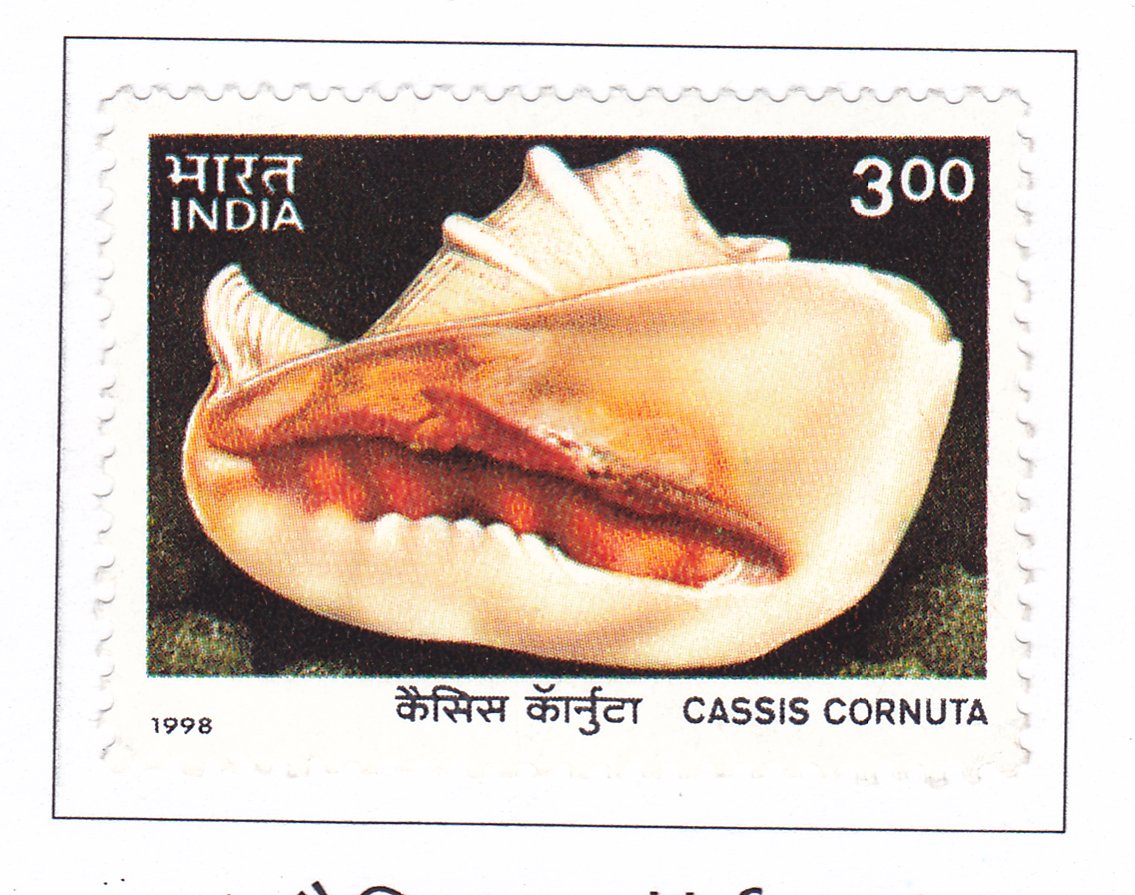Yellow Helmet (Cassis cornuta)

Technical Data
| Stamp Set | Shells from the Andaman and Nicobar Islands |
|---|---|
| Date of Issue | December 30, 1998 |
| Denomination | Rs. 3 |
| Quantity | 1,000,000 |
| Perforation | comb 13½ x 13 |
| Printer | Security Printing Press, Nashik |
| Watermark | No Watermark |
| Colors | Multicolor |
| Catalog Codes |
Michel IN 1668 Stamp Number IN 1729 Yvert et Tellier IN 1434 Stanley Gibbons IN 1831 |
| Themes | Animals (Fauna) | Molluscs | Sea Life | Shells | Snails and Slugs |
Table of Contents
The Yellow Helmet (Cassis cornuta) is a striking and unique sea shell, distinguished by its distinctive appearance. Here’s an overview of this fascinating mollusc:
Yellow Helmet (Cassis cornuta)
Description:
- Appearance: The Yellow Helmet has a robust and large shell, which is characterized by its bright yellow to orange color with prominent, horn-like projections (or “spines”) on its surface. These projections give the shell its distinctive helmet-like appearance.
- Size: The shell can reach a length of up to 200 mm, making it one of the larger species of the Cassis genus.
- Texture: The shell surface is often smooth but can have fine ridges and patterns.
Habitat:
- Distribution: This species is found in the Indo-Pacific region, including areas such as the Red Sea, Indian Ocean, and Western Pacific Ocean.
- Environment: It typically inhabits coral reefs, sandy or muddy substrates, and can often be found at depths ranging from shallow waters to several meters deep.
Ecological Significance:
- Role in Ecosystem: As a predatory mollusc, the Yellow Helmet feeds on various types of marine invertebrates. It plays a role in the ecological balance of its habitat by controlling the populations of its prey.
- Sensitivity: Like many marine organisms, it is sensitive to environmental changes and pollution, which can impact its habitat and survival.
Cultural and Symbolic Value:
- Value: The Yellow Helmet is sometimes sought after by collectors due to its unique appearance and size. It is often admired for its striking coloration and impressive horn-like projections.
Stamp Design:
- Visual Representation: The stamp design for the Yellow Helmet would highlight its vivid yellow and orange coloration, along with its distinctive spines. The shell’s texture and the overall shape are emphasized to showcase its unique features.
- Background Elements: The backdrop might include imagery of coral reefs or underwater scenes that reflect its natural habitat, providing context and highlighting its marine environment.
Educational Impact:
- Awareness Raising: The stamp serves to increase awareness about the diversity of marine life and the importance of conserving marine habitats.
- Public Interest: By featuring the Yellow Helmet, the stamp encourages interest in marine biology and the preservation of ocean ecosystems.
This stamp is a tribute to the remarkable beauty and ecological role of the Yellow Helmet, emphasizing the need for conservation and appreciation of marine life.
